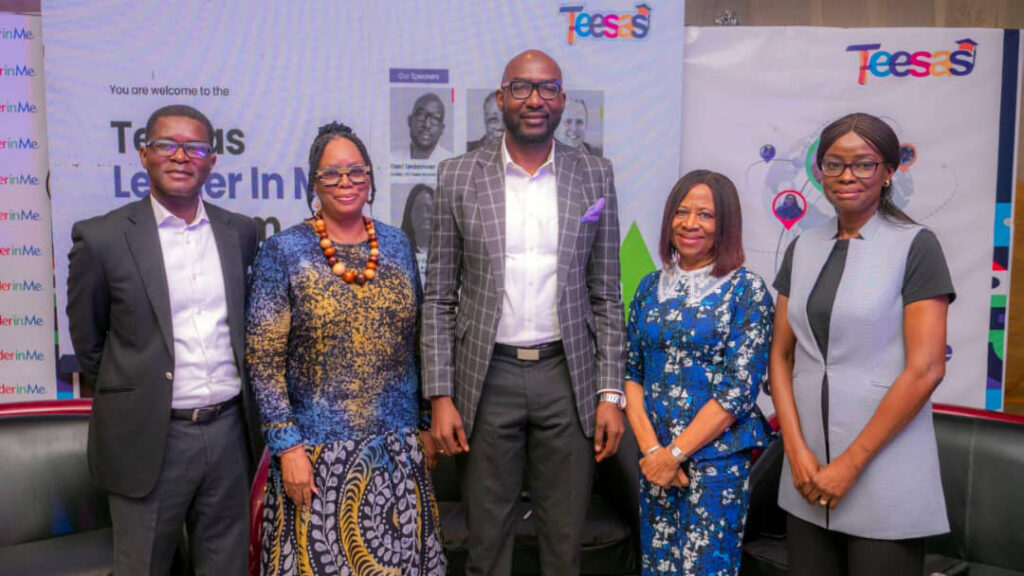
In Nigeria, the use of local languages or vernacular, as it is called, is banned in most schools, this suggests why the World Bank, in a recent report about the standard of education in Nigeria, stated that the country is experiencing a learning poverty in which 70 per cent of 10-year-olds cannot understand a simple sentence or perform basic numeracy tasks.
Similarly, the Global Partnership for Education (GPE), in its reviews, noted that children whose primary language is not the language of instruction in school are more likely to drop out of school or fail in early grades.
Recent successful initiatives to promote mother language-based education have taken place in Djibouti, Gabon, Guinea, Haiti and Kenya.
Findings from UNESCO show national efforts made by different countries to foster cultural and linguistic diversity.
In addition, UNESCO recently unveiled the World Atlas of Languages, an unprecedented initiative to preserve, revitalise and promote global linguistic diversity and multilingualism.
The United Nations Educational, Scientific and Cultural Organisation (UNESCO) had noted that a child’s first language is the optimal language for literacy and learning throughout primary school.
In spite of growing evidence and parental demand, a lot of educational curricula around the world insist on exclusive use of one, or sometimes, several privileged languages. This means excluding other languages, including the children.
As part of efforts to tackle learning difficulties, the Federal Government recently approved a new National Language Policy, which makes mother tongue a compulsory medium of instruction for public primary school pupils.
The Minister of Education, Adamu Adamu, said the mother tongue would be used exclusively for the first six years of education, while it will be combined with English language from junior secondary school.
According to him, though the policy has officially taken effect, it can only be fully implemented when government develops instructional materials and qualified teachers are available.
Adamu said the mother tongue to be used in each school would be the dominant language spoken by the community where it is located. The minister said the government is prepared to preserve cultures and their peculiar idiosyncrasies, stressing that so much has been lost due to the extinction of some local languages.
He noted that all Nigerian languages, which he said are over 600, are equal and will be treated as such.
Experts react
Experts are, however, divided on the gains or otherwise of the policy. While some described the policy as a game changer in learning among children, others said it is retrogressive and may adversely affect the nation’s education system.
A lecturer in the Department of English Language, Federal University, Dutsima, Dr. Ahmed Yaya, said studies have shown that children assimilate better when taught in the language of the environment.

He said an experiment by a former Minister of Education, Prof. Babatunde Fafunwa, revealed that pupils assimilate better in local language and it became a policy during his time that children in Primaries one to three were taught in their native languages but, sadly, this hasn’t been sustained.
“It is highly feasible. In fact, there are over 600 languages in Nigeria. This is why the target is that pupils should be taught in the language of the environment. So, each school uses it as language of instruction, the language of that environment. For instance, if a child is going to school in Badagry, he will be taught in the Egun language.
“However, this policy is for the first six years of primary school. Afterwards, pupils would be taught in English language, while a native language would be offered, compulsorily, by all the students.”
Monday Effiong, a lecturer in the department of Education, Akwa Ibom State University, said: “If you first learn to read in a language that you understand, then it will strengthen your English literacy later. Reading is the foundation for all other learning, if the children cannot read, it will affect their science and other subjects, so, and we are trying to reinforce their basic reading skills.
“Over 95 per cent of our kids do not speak English at home and they never hear English outside the school, so, they don’t have the comprehension. However, aside from the three dominant languages namely —- Hausa, Yoruba and Igbo —- other languages should also be used at the basic education level.”
An educationist, Dr Teni Atunramu, said the adoption of indigenous language at the primary education level would raise the bar of teaching and learning.
Atunramu noted that with the move, the country will be on its way to joining global powers that have advanced in science and tech, as the pupils will assimilate better in mother tongue than English.
She said North Korea, which is becoming a world nuclear force, hardly writes in English language.
“There are proofs to show that nations, which teach and publish books in their local languages, are more advantageous than those who rely entirely on the English language. India, which today has become a choice place for medicine, teaches and publishes more in mother tongue than English language.
“China is a developed country and leads in construction and infrastructure. They hardly speak English and all their books are in the local language. In Indonesia, which is also a developing country, teaching and learning is conducted in indigenous languages.
“Nigeria can actualise this, it will be a quantum leap in our educational development as well as a broad pathway towards achieving the much-desired breakthrough in medicine, science and technology,” Atunramu said.
Others added that the policy would help pupils learn more effectively and efficiently, with the learner likely to retain what he or she has been taught for use in the future.
Opposition
However, a Professor of Education at University of Uyo, Inem Akpan, faulted the use of mother tongue in schools, saying despite earlier attempts with the three main languages, some students still cannot communicate effectively.
He argued that English Language readily facilitates communication, and places students in an advantageous position to interact with more people in most parts of the world.
Besides, he noted that some pupils may not be familiar with the local language, or those who transferred from another area/states and could face communication challenges and lack of reading materials.
“If the teacher is not conversant with the language, pupils will lose out academically. Some will equally face pronunciation challenges of some words. Pupils may not learn English faster when they move from primary grade.”
Also, Ahmed Audu of the Department of Mass Communication, University of Maiduguri said Federal Government’s approval of use of mother tongue in elementary schools across the nation could be a setback to the already comatose education sector.
He said: “Though English is the official language, many Nigerians are still battling with poor communication techniques. Majority of Nigerians, including pupils, students and even university graduates can’t write or speak good English despite the training they have had right from elementary to degree level.
“The Federal Government should realise that the new policy to instruct pupils using their mother tongue is a setback to the nation’s education sector.
“The current policy of instructing pupils using English Language is in order. It helps pupils and students acquire good communication skills and have exposure while dealing with issues of national importance.
“Also, it is not good enough to adopt such a policy in a country such as Nigeria, where regional, religious and cultural differences are the major concerns. How could one communicate properly in English language when the person lacks the requisite foundation? Therefore, adopting mother tongue as a way of instructing pupils in the nation’s primary schools is a major setback to education. The policy is indeed retrogressive, considering how students and graduates are battling with poor English communication.
“Since Nigeria is multi-ethnic and multi-religious, English language should be maintained in our schools as a medium of instruction. As such, it is good for the government to drop such an obnoxious and retrogressive policy as it would do more harm than good to the education sector,” Audu said.
An educationist, Mrs. Olivia Udom, wondered why President Mohammadu Buhari is introducing the policy at this time, saying the belated introduction of the policy is likely to result in its haphazard implementation and compromised success.
Udom further stated that the failure of the FG to train enough teachers is yet another obstacle to the smooth takeoff and success of the policy.
“Well-trained teachers are experts that would help give meaning to the FG’s mother tongue policy, but in a situation where there are inadequate number of sufficiently-trained teachers for the task ahead, the execution of the policy could be difficult.”
Teachers react
A teacher, Esther Eliogu, said for a child’s intellectual enhancement, teaching in the local language is preferable and it will yield results. Eliogu said if children are taught in local languages, the level of assimilation would be high and we would be able to preserve the nation’s heritage.
 She insisted that learning in mother tongue was the right of the child as it makes children strong in mental and social bonding.
She insisted that learning in mother tongue was the right of the child as it makes children strong in mental and social bonding.
“Learning does not begin in school. Learning starts at home in the mother language. Although the start of school is a continuation of this learning process, it also presents significant changes in the mode of education,” she said.
Another teacher, James Eboh, said: “Many education systems favour those using national or ‘global’ languages instead of mother tongue in teaching. Developing the use of mother tongue to deliver lectures poses a lot of challenges that should be addressed first before applying it.
“Sometimes in multilingual countries with many local languages, teachers do not speak the local language which the pupils learn at home. They speak the dominant language. In other cases, teachers themselves may not be fully proficient in the language of instruction. For example, how many Igbo teachers in Lagos speak Yoruba fluently? ” He asked.
Despite the fears, stakeholders agreed that for the policy to take off, there must be massive investment in procuring the needed instructional materials, including textbooks and ICT-enabled aids, teachers have to be trained; while instructors must be proficient in the first languages to be able to impart knowledge to pupils efficiently.











